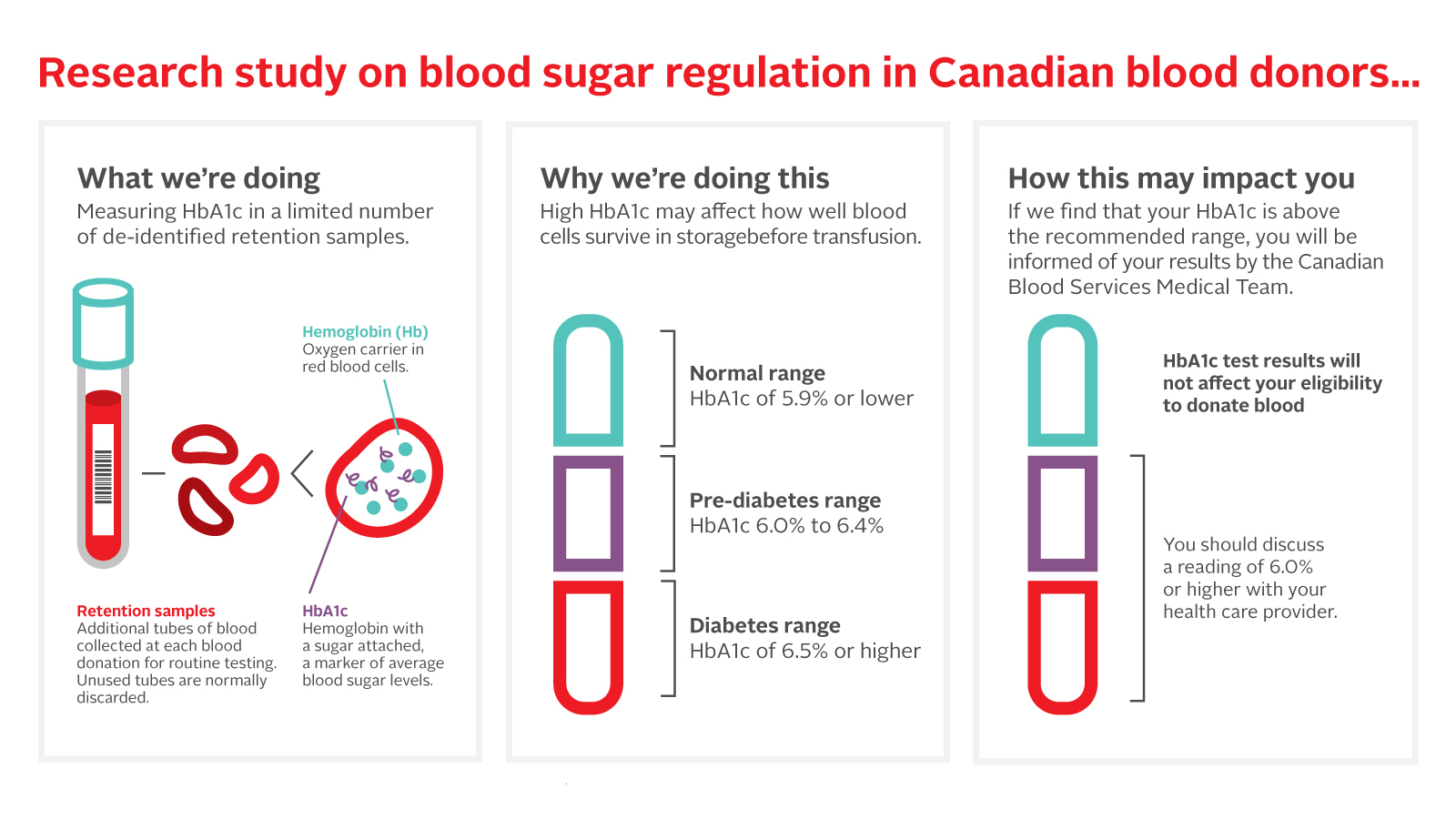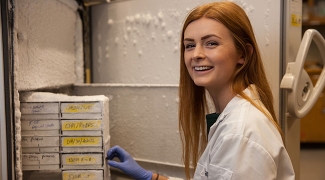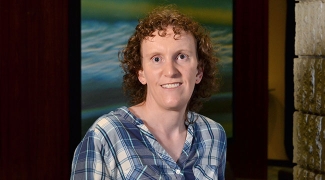Investigating the impact of age and diabetic status on blood product characteristics
Tuesday, March 21, 2023 Elyn Rowe
Elyn Rowe, a PhD student with Dr. Dana Devine at CBR was awarded first prize in Canadian Blood Services’ Research 180 Video Competition for creating an original video that showcases her research (which she describes in this blog below). Check out her winning 3-minute video (embedded video).
To expand the donor pool and promote inclusivity, Canadian Blood Services has made strides to expand donor eligibility criteria. Some notable changes have been removing the upper age limit restriction, and the inclusion of most individuals with diabetes. However, since blood products are not as standardized as other types of treatments and most bag-to-bag differences are likely linked to the donor, we need to understand which donor factors feed into these differences. It has also become apparent that the quality of red cells and platelets from different donors changes during storage before transfusion, but the underlying factors associated with these differences in storage are unclear. Importantly, both aging and diabetes can cause stress on all cells in the body, including blood cells. There have been reports of differences in red cells and platelets with aging and in individuals with diabetes, and some studies have suggested that diabetes-related differences may align with blood sugar control. More work is needed to understand this relationship and whether it’s present in the Canadian Blood Services donor population. More broadly, there is also a need to evaluate how age and diabetic status impact blood product characteristics and how well products store before transfusion. In the future, this may lead to differences in storage and production of blood components from different donors, to optimize the quality of our blood components.
To fill this gap in research, our lab located at the Centre for Blood Research at the University of British Columbia, is conducting a study which has two main goals:
- Screen blood sugar levels in Canadian Blood Services donors across Canada and investigate how it relates to measures of product quality.
- Recruit Canadian Blood Services donors with diabetes and across the eligible age range in the Vancouver area for whole blood donation to investigate differences in blood product properties during storage.
Goal 1: Screening blood sugar control in donors across Canada
To screen for blood sugar control, our team will use tubes of blood called “retention samples”. These are collected at every donation in case routine testing needs to be repeated, but typically end up being discarded. Using a random selection of these de-identified retention samples, we will measure a type of “glycated hemoglobin” called “HbA1c”, which is a marker of average blood sugar levels over 3-4 months. When there is extra sugar in the blood, it can be attached to the hemoglobin in red blood cells, in a process called “glycation”. Since red blood cells circulate in the body for about 3-4 months, measuring glycated hemoglobin can give us an idea of blood sugar levels over that period, rather than measuring blood sugar levels directly, which is impacted by the food eaten that day. We will also measure “hemolysis” — the breakdown of red blood cells; a marker of red cell quality – and how “activated” the platelets in the blood sample are, which can be a predictor of how well platelets store before transfusion. We hope to find out whether blood sugar levels align with these measures of product quality, and whether age or the type of diabetes drive differences in the measurements.

Canadian Blood Services will follow up with donors whose samples are tested as part of this study, if their average blood sugar levels above the recommended range set by Diabetes Canada.
Goal 2: Characterizing the impact of donor age and diabetic status on blood product characteristics and storage performance from donors recruited in Vancouver
Our second goal is to perform a deeper characterization of each blood product from a whole blood donation, to better understand differences, and whether they are linked to age or diabetes. We will recruit whole blood donors in the Vancouver area, who can travel to the Blood4Research Facility to provide a whole blood donation for research purposes. If you donated in the Vancouver area between March 2021 and June 2022, you may have already received an email about this study! Whole blood donations will be separated into their components – red cell concentrate, platelet concentrate, and plasma – such that we can study each blood product separately, similarly to how Canadian Blood Services would provide them to hospitals. With the study team’s expertise in red cells, platelets, and metabolism, we will perform a series of measurements on the blood products across normal storage periods used in hospitals. Some of the tests we will do include looking at how “deformable” red cells are — which can provide information on how well they could travel through the body — and how “responsive” the platelets are — which can tell us how well they would be able to form a blood clot to stop bleeding in a patient. With this study, we will not only gain a better understanding of differences in blood product characteristics, but also whether quality changes during storage are linked to donor age or diabetic status. This may help us tailor blood product storage based on donor factors, optimizing the use of products from generous donors.
If you are located near Vancouver and interested in providing a whole blood donation for this study, please follow the appropriate link to express interest to our research team: Type 1 Diabetes, Type 2 Diabetes, Not diabetic .
This work will help us better understand where differences in blood products come from so we can ensure safe and optimal blood products within Canadian Blood Services, and it will help inform blood services worldwide on the implications of expanding donor eligibility criteria.
Any questions about the research study can be directed to Elyn Rowe, the PhD candidate at the University of British Columbia leading this study: elyn.rowe@ubc.ca.
Canadian Blood Services – Driving world-class innovation
Through discovery, development and applied research, Canadian Blood Services drives world-class innovation in blood transfusion, cellular therapy and transplantation—bringing clarity and insight to an increasingly complex healthcare future. Our dedicated research team and extended network of partners engage in exploratory and applied research to create new knowledge, inform and enhance best practices, contribute to the development of new services and technologies, and build capacity through training and collaboration. Find out more about our research impact.
The opinions reflected in this post are those of the author and do not necessarily reflect the opinions of Canadian Blood Services nor do they reflect the views of Health Canada or any other funding agency
Related blog posts
Announcing the winning entries from the Canadian Blood Services Research 180 Video Competition showcasing “Impact in motion”!
Canadian Blood Services, in partnership with the Centre for Blood Research, just launched our first ever Research 180 Video Competition for trainees. Read on to learn more!
Dr. Niamh Caffrey, an epidemiologist in Innovation and Portfolio Management’s donation policy and studies group, shares her experience attending this year’s Canadian Society for Transfusion Medicine (CSTM) annual meeting.


